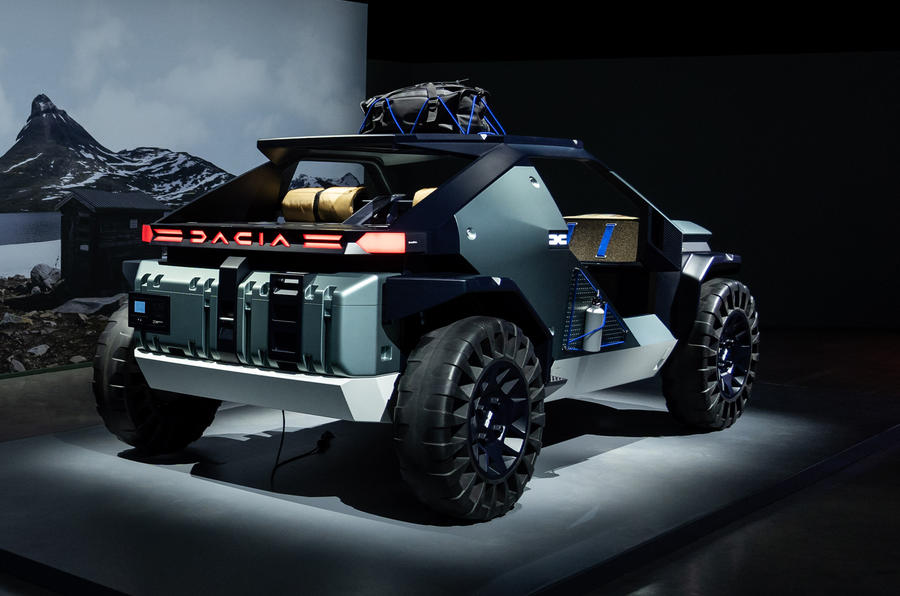Away from the bright lights of Pebble Beach, Monte Carlo and Knightsbridge, a revolution is quietly bubbling away, fuelled by a preoccupation with affordability, practicality and utility.
Because over here in the real world, 0-62mph times and split-second torque-vectoring are rather less significant than, say, load capacity and ease of maintenance.
These are far less sexy attributes for car brands to shout about but far more commonly considered by the average car buyer - and there’s nothing like a global economic meltdown to really bring to the fore exactly what a consumer wants and needs of a product.
And doesn’t Dacia know it? The Romanian brand has long favoured a frill-free approach to car development and marketing, recognising a general market disillusionment with expensive and weighty optional extras, complex electrified powertrains and invasive safety technology.
With this latest concept, Dacia provides a welcome (dare I say, rare?) sign that car companies' bosses do listen to their customers – and shows that today’s economic climate could foster a renaissance of the simple, cheap car.
‘Essential but cool’, Dacia calls it, reckoning that cheap can still be very cheerful indeed.
Thankfully, it’s not the only brand with this mindset: Skoda’s new Vision 7S SUV concept is an exercise in romanticising attainable family motoring and Toyota is working on an electric follow-up to the charmingly simple Aygo X baby crossover.
Even in this time of economic uncertainty, we can still celebrate the technical and dynamic brilliance of £100,000-plus sports cars, limousines and tank-like SUVs - but there’s also plenty to still be excited about several large steps down the pricing ladder.









Join the debate
Add your comment
I hope you are right: I agree that Dacia are on the right track and they deserve to reap the benefit.
In the addition to the very welcome 'frill-free' approach you describe, the Manifesto also illustrates a slightly different philosophy - that of customisation. Dacia is providing the platform on which their customers can build their own type of car. The Manifesto's customer can specify his/her preferred type of drivetrain and the infotainment set-up depends on the device one chooses to use. If the customer so desires they can leave the car free of frills or can add more.
Other examples of this include the bed and tent that can be added to the Jogger.
It feels strange but as a car nerd I genuinely think that they are one of the most exciting brands in the whole auto industry. I anticipate their next move so much more than that of BMW, Mercedes, VW, Land Rover or any other 'aspirational' brand.
Only the essentials, less consumption of materials and resources, lighter weight, cheaper to run, cheaper to buy. Dacia is leading the way. Hopefully many others will have to follow and get rid of excessive power & mass, including all the idiotic overly-complex electronics & wiring that nobody truly needs in a car.
Absolutely agree with Lessis More, and its refreshing to read an article supporting Dacia's common sense approach to the market. Makes a change from motoring journalists continually skimming over the ever increasing list prices by pointing out the kit levels, as if that somehow justifies it.
I love the honesty and practicality of the cars they offer. They are the only manufacturer that offers a mobile holder free across the range. Their modular roof rails / bar are pure genius. What's not to like? I would like to see more self-shifters in their city oriented cars. Even with electrification and the ever more stringent (and expensive) emission regulation, they should stay at the top of the value for money scale, with most of the things you really need. I think they have also picked the right time for a rebrand, to move away from the cheap and not so cheerful image of the past. Kudos to Dacia.